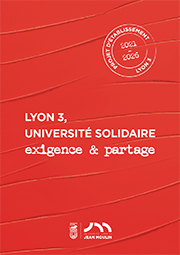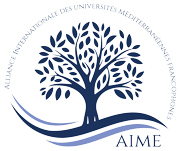AccueilRechercheProgrammes et productions scientifiquesThèsesThèses soutenuesThèses soutenues - 2006-2021Thèses soutenues - 2018
-
Partager cette page
- Recherche,
BROSSARD Marine
The Riverscape of the Yangzi’s Three Gorges: Landscape and the National Imaginary in the People’s Republic of China (1994-2014)
Publié le 1 février 2019 – Mis à jour le 1 février 2019
Thèse en Etudes Transculturelles, soutenue le 28 septembre 2018.
Cette thèse examine la relation entre paysage et imaginaire national dans le contexte du paysage transformé des Trois Gorges du fleuve Yangzi en République Populaire de Chine à travers l’exploration de trois types de dimensions du paysage : politique, poétique et économique. Tout d’abord, l’étude des dimensions politiques met en évidence la marchandisation du paysage des Trois Gorges réalisée par l’Etat à travers l’invisibilisation de la disparition du paysage, ainsi que l’absence massive d’agentivité du peuple dans sa relation au paysage national, concluant ainsi à l’épuisement de l’appréciation paysagère. Ensuite, l’étude des dimensions poétiques analyse le livre Three Gorges Diary de Yan Changjiang 颜长江, journal intime littéraire et photographique décrivant les dernières années du paysage fluvial avant sa submersion et exprimant une intense émotion de regret menant à un sursaut de résistance. Puis, l’étude des dimensions économiques considère l’intérieur du paysage fluvial avec une étude ethnographique menée dans un village situé à l’entrée de la Gorge Qutang et s’interroge sur la question de l’absence du paysage due à un manque d’extériorité et donc de distanciation, et la question de l’apparition économique du paysage liée à la relation entre paysage et droits fonciers ruraux et à l’événement national de la traversée de la Gorge Qutang par un funambule canadien en 1995. Enfin, prenant pour bornes temporelles l’année 1994 avec le début de la construction du Barrage des Trois Gorges et l’année 2014 avec la gratuité de l’entrée au site touristique du barrage accordée à tous les visiteurs « chinois » (distingués en terme de définition raciale étendue au-delà de la Chine continentale), cette thèse se termine sur une longue conclusion en forme d’essai sur la question de la kitschification de la réalité dans le contexte de la postmodernité dans les années 2010 et sur le potentiel subversif de l’imagination d’une nouvelle appréciation paysagère dans l’opposition à la marchandisation de la réalité.
This thesis examines the relation between landscape and the national imaginary in the context of the Yangzi’s Three Gorges transformed riverscape in the People’s Republic of China through the exploration of three kinds of landscape dimensions: political, poetic and economic. First, the study of the political dimensions highlights the commodification of the Three Gorges landscape performed by the State through the invisibilisation of the landscape’s disappearance, as well as the massive absence of agency from the people in its relating to the national landscape, thus concluding in the exhaustion of landscape appreciation. Second, the study of the poetic dimensions analyses Yan Changjiang 颜长江’s book Three Gorges Diary, a literary and photographical diary recounting the last years of the riverscape before its submersion and expressing an intense emotion of regret leading to a burst of resistance. Third, the study of the economic dimensions considers the inside of the riverscape with an ethnographic study carried out in a village located at the entrance of the Qutang Gorge and reflects upon the issue of the absence of landscape due to the lack of distancing exteriority, and the issue of the economic appearance of landscape related to the question of the relation between landscape and rural land rights and to the context of the national event of the tightrope walk over the Qutang Gorge that took place in 1995. Finally, starting in 1994 with the beginning of the construction of the Three Gorges Dam and ending in 2014 with the free entrance to the Three Gorges Dam touristic spot granted to all the “Chinese” visitors (with a racial definition extended to non-mainlanders), this thesis ends on a long conclusion in the form of an essay on the question of the kitschification of reality in the context of postmodernity in the 2010’s and on the subversive potential of the imagining of a new landscape appreciation in opposing the commodification of reality.Mots-clés : Trois Gorges, fleuve Yangzi, Barrage des Trois Gorges, paysage transformé, imaginaire national, marchandisation, kitschification, disparition invisible, appréciation paysagère
Keywords : Three Gorges, Yangzi River, Three Gorges Dam, transformed landscape, national imaginary, commodification, kitschification, landscape appreciation
Directeur (trice) de thèse : Grégory LEE
Membres du jury :
- M. Gregory LEE, Directeur de thèse, Professeur des Universités Lyon 3,
- M. Florent VILLARD, Professeur des Universités, IEP Rennes,
- Mme Vanessa FRANGVILLE, Professeure, ULB Bruxelles,
- M. Michael DUTTON, Professor, Goldsmiths, University of London,
- Mme Katie HILL, Programme Director, Sotheby's Institute of Art, Londres.
Président du jury : Florent VILLARD
Documentation
Mise à jour : 1 février 2019







